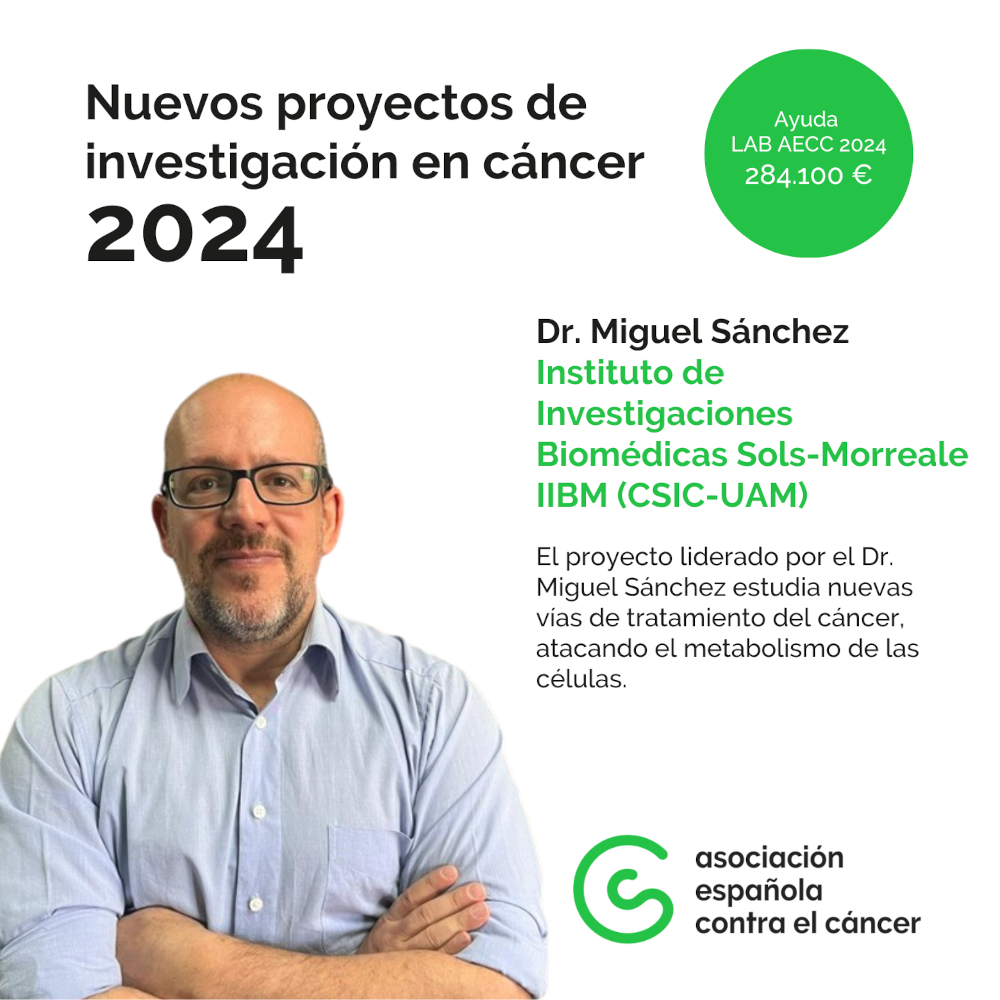- Miguel Sánchez coordinates a research Project sponsored by Asociación Española Contra el Cáncer to explore links between fat metabolism and immortalization in tumor cells
On February 13th, the Fundación Científica Asociación Española Contra el Cáncer held an event to present 54 fellowships and grants awarded in 2024 to scientists carrying out their cáncer research at Comunidad de Madrid, covering all career stages. Five scientists working at Instituto de Investigaciones Biomédicas Sols-Morreale (IIBM), CSIC-UAM were awarded: Dr. Miguel Sánchez, PI of a LAB-AECC grant; and Alejandro Baena, Belén Moreda, Irene Abajo y Noelia Mayor, who undertook undergraduate training during the summer.

Miguel Sánchez, Principal Investigator of the “Cell Compartmentalization, Homeostasis and Inflammation” team at IIBM, is recipient of a “LAB AECC” grant, endowed with 284.100 euro, titled: “Lipid metabolism and organelle homeostasis: novel opportunities for understanding, detecting and intervening genomic instability and telomere alterations in tumor cells (LIPALT)”. Drs. Ignacio Flores at Centro de Biología Molecular Severo Ochoa (CBM-CSIC-UAM) and Miguel Ángel del Pozo at Centro Nacional de Investigaciones Cardiovasculares (CNIC) are collaborators contributing to this research project.
Miguel explains: “Some tumor cells, especially from certain bone, brain or pancreatic cancers, rely on an unusual mechanism to ensure their immortality, called Alternative Lengthening of Telomeres (ALT). Now then, why and how they do it? Previous research suggests that cells which activate ALT have a peculiar way of using and storing fat; for example, they can form fat droplets within their nucleus, amidst their genomic information. These unusual features could help us understand why the activation of ALT is more frequent in specific tumor types, and whether these cells have particular “Achiles´heels” we can leverage on”. The ALT mechanism is also a potential alternative route by which many other tumors could achieve resistance to drugs blocking the telomerase, the most common immortalization mechanism. “We hope our studies will reveal novel targets for intervening ALT, and to classify tumors relying on this mechanism for their survival”, the researcher concludes